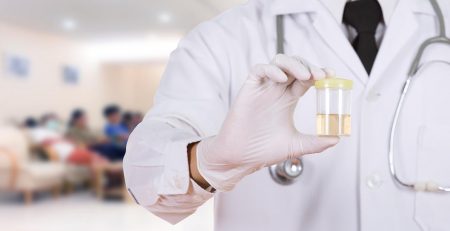When a person abuses alcohol, either in substantial amounts or for a long period, they risk experiencing side effects on their physical and mental health. These effects alone have the potential to wreak havoc on a person’s life, especially if left unaddressed. An example of this is alcohol-induced psychosis, which can lead a person to act irrationally – or worse. Learn about the implications of this kind of diagnosis and how it should be addressed with Behavioral Health of the Palm Beaches.
What Is Alcohol-Induced Psychosis?
Alcohol-induced psychosis can occur in individuals who consume excessive amounts of alcohol over a long time. It is characterized by the development of psychotic symptoms such as delusions, hallucinations, and disordered thinking. These symptoms serve as an indicator of the toxic effects of alcohol on the brain. They can be frightening and distressing for the individual and can also have a significant impact on their ability to function in daily life.
While the exact cause of alcohol-induced psychosis is not fully understood, it is believed to be related to the disruption of neurotransmitter systems in the brain that regulate mood, perception, and cognition. Chronic alcohol abuse can also lead to changes in the brain’s structure and function, which can contribute to the development of psychotic symptoms. Treatment for alcohol-induced psychosis typically involves addressing the underlying alcohol abuse disorder through detoxification, rehabilitation, and therapy to prevent further episodes of psychosis and promote long-term recovery.
Alcohol-Induced Psychosis Symptoms
This severe condition can have a significant impact on an individual’s mental health and well-being. The symptoms that a person experiences can vary in severity and duration and may include the following:
- Delusions – False beliefs or ideas that are not based on reality. These delusions can be paranoid in nature and may involve the belief that others are plotting against them.
- Hallucinations – Perceptions of sights, sounds, smells, or sensations that are not based on reality. Alcoholic hallucinations can be auditory, visual, or tactile in nature.
- Disordered thinking – Difficulty organizing thoughts and making sense of the world around them. Disordered thinking can lead to confusion, disorientation, and difficulty communicating with others.
- Agitation – Restlessness, irritability, and heightened emotional arousal. Agitation can be intense and may lead to aggressive or violent behavior.
- Depression – Feelings of sadness, hopelessness, and worthlessness. Depression associated with alcohol-induced psychosis can be severe and may increase the risk of suicide.
What Makes Alcohol-Induced Psychosis So Dangerous?
The symptoms of this condition can cause significant distress and impair an individual’s ability to function in daily life. Delusions and hallucinations can lead to irrational and potentially dangerous behavior, while disordered thinking and depression can increase the risk of suicide. In addition, this condition is often a sign of a larger underlying problem of alcohol abuse, which can have serious long-term health consequences such as liver damage, heart disease, pancreatitis, and cancer. It is important for individuals who are experiencing symptoms to seek help as soon as possible to prevent further harm and promote long-term recovery.
For those ready to take those steps toward sobriety, the BHOPB detox center offers alcohol withdrawal programs that will help patients navigate potential symptoms and side effects. Once this is complete, patients can move on to receive some of the best alcohol addiction treatment in Lake Worth. You don’t have to face the challenges of alcoholism recovery alone. Our team of treatment professionals is ready and waiting to provide you or a loved one with the support necessary to make sensational life changes.
Call our Banyan Lake Worth rehab today at 561-220-3981 and speak with an intake specialist about the therapy programs we offer and how they can help you recover.
Related Reading













